
Our view of reality is severely limited. The reason for this is simple: we evolved on an African plain three million years ago. And so we have the senses necessary to survive on an African plain: eyes that can see far enough to spot a predator approaching, ears sensitive enough to hear a rustling in the long grass… Those senses have revealed only an infinitesimal fraction of the world and provided us with a certain ‘common sense’. But, at every level, we’re deceived by our ape-like intuition. Most of nature is deeply hidden from us and the world isn’t what it seems. So many things that seem obviously true are not. And here are just a few…
1 EARTH IS FLAT
Apart from the lumps and bumps of mountains, Earth certainly seems flat. But there are several clues that not only is it curved, but in fact it’s a large ball. For one thing, receding ships drop below the horizon before dwindling to a dot. Also, during an eclipse of the Moon, when Earth passes between the Moon and the Sun, the shadow of Earth on the Moon is clearly curved.
Even stronger evidence that Earth is round came from the first circumnavigation of the world in a ship sailed by the Portuguese navigator Ferdinand Magellan. Though he was killed in the Philippines, the voyage was completed by the Basque navigator Juan Sebastián del Cano in 1521. But, of course, the easiest way to see that Earth is a sphere is from space. And there’s no doubt that what the Apollo 8 astronauts photographed rising above the grey desolation of the Moon half a century ago was a sphere.
This story is from the February 2024 edition of BBC Science Focus.
Start your 7-day Magzter GOLD free trial to access thousands of curated premium stories, and 9,000+ magazines and newspapers.
Already a subscriber ? Sign In
This story is from the February 2024 edition of BBC Science Focus.
Start your 7-day Magzter GOLD free trial to access thousands of curated premium stories, and 9,000+ magazines and newspapers.
Already a subscriber? Sign In
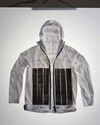
NOW YOU SEE ME, NOW YOU DON'T
Scientists around the world are working on ways to hide us from sight. But how close are we to developing tech that could make us invisible?

UNCORKED POTENTIAL
How much good can ditching drink for a month really do? Answer: a whole lot. In fact, science shows even short-term abstinence could unlock a cocktail of lasting benefits
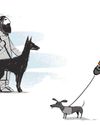
Scientists discover when humans and dogs became friends
The relationship spans thousands of years, but experts might have pinpointed the first connection
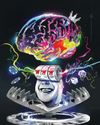
Why it's so hard to kick a gambling addiction
We now know that gambling can be as addictive as drugs, but there are factors that can make it even harder to quit

How much could Ozempic change our world?
The weight-loss drug has made headlines and broken sales records, but what does it mean for our future?
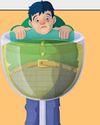
WHY DOES DRINKING ALCOHOL MAKE IT SO MUCH HARDER TO LOSE WEIGHT?
While enjoying the occasional glass of wine or pint of beer may seem harmless, regular or excessive alcohol consumption can significantly hinder your weight-loss journey for a few reasons:

Why do so many New Year's resolutions fail?
Establishing positive new habits is hard at any time of year. But there are ways to stop your attempts ending in failure
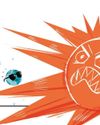
'Extreme' solar radiation storm could hit Earth
Sun-like stars may have tantrums far more frequently than we thought

HOW CAN I BANISH THE JANUARY BLUES?
Dark mornings, long chilly evenings and short days; many people find January tough.

Neutrinos are getting in the way of dark matter detection
These troublesome particles are difficult to detect, but they're starting to show up in places where they're not wanted